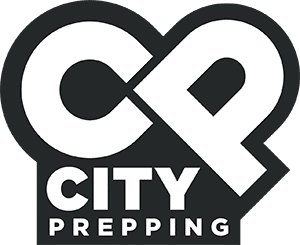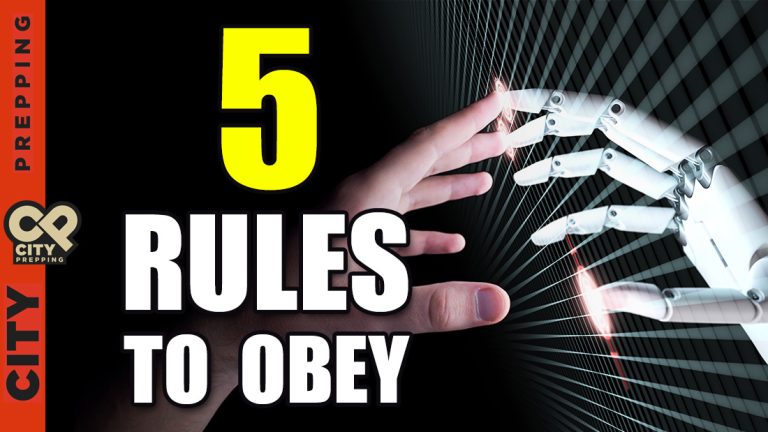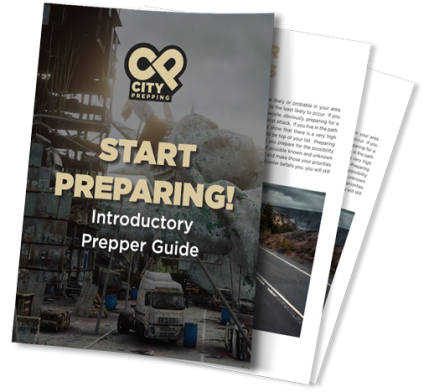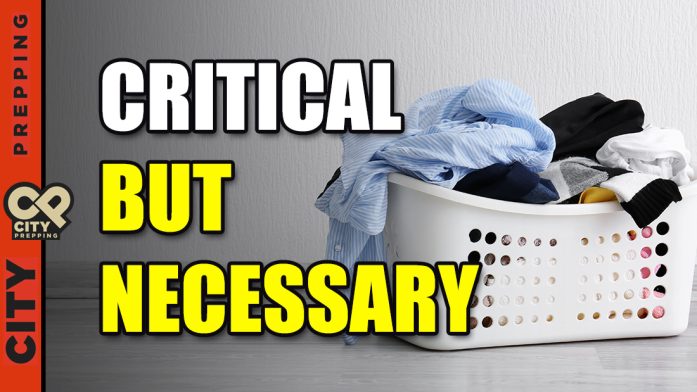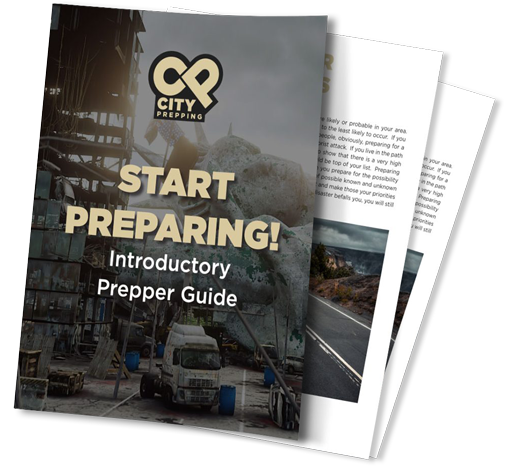 Even if you don’t engage with AI in any way, that doesn’t mean your information won’t end up in their systems. As companies build and engage with AI, more and more data is being put in them. Phone records here, browsing histories there, transactions, addresses, routes traveled, names, and more are all potentially, sometimes accidentally and sometimes on purpose, being fed into these machines. Every site you visit, every call you make, every digital transaction you make through credit or debit cards, and even the route you take from home to work, church, or school is recorded in millions of data points, especially if you carry a smartphone. Have you done business with or have an account at Samsung, Google, Microsoft, Amazon, Facebook, IBM, Apple, JPMorgan Chase, Citigroup Inc, Goldman Sachs, Deutsche Bank, or Wells Fargo? If you do, it’s possible your data has already been sucked up into an AI platform as part of its “training” or development process.
Here’s an example. In one recent misuse of data, it has come to light that Samsung employees leaked sensitive and confidential company information to OpenAI’s ChatGPT on at least three occasions. One was source code for semiconductors a programmer was attempting to debug. One was the entire transcript of an internal company meeting, and one was an employee sharing confidential code to try and find a fix for defective equipment. While these leaks, fortunately, did not involve customer data this time, the data became part of the AI’s training and learning. Anyone accessing that AI online or within that company had access to the leaked material.
The leaks emphasize the risk of sharing sensitive data with AI chatbots and how easily OpenAI’s millions of willing users can suck up the data. In response, Samsung has implemented an “emergency measure” limiting each employee’s prompt to ChatGPT to 1024 bytes. It’s safe to assume, however, that of the 1,000s of companies developing AIs, not all will be proactive about limiting the data used to train them. Even now, AIs that may not be limited to their original learning and training are being deployed on the web. Confidential data from millions of users, some likely tied to your personal information (phone numbers, email addresses, social security numbers, transactions, biometrics, behaviors, and so forth), are likely being fed into AIs being developed without much oversight or enforced guidelines.
Many AI systems are taught or “trained” and then cut off from learning new information before they are put forward on the internet for public access. In a perfect world, that would be enough, but this isn’t a perfect world. Those prompts, that data put into the system is recorded somewhere, and that somewhere may not be deeply hidden behind multiple layers of security, impenetrable encryption, and firewalls.
It’s difficult to know how many companies are using or developing some form of AI. Google, Microsoft, Amazon, Facebook, IBM, and Apple are just a few well-known companies, but there are hundreds more. In January, Amazon limited the use of ChatGPT and cautioned employees against entering any sensitive information, including code, into the chatbot. This decision came after the company noticed ChatGPT’s responses contained data that closely resembled Amazon’s internal information. ChatGPT has been included in Bank of America’s list of unauthorized applications for business use. Similarly, JPMorgan Chase, Citigroup Inc, Goldman Sachs, Deutsche Bank, and Wells Fargo have also blocked access to the chatbot. These are great first steps, but what happens when an employee gets a laptop stolen or a hacker uploads internal or classified documents to an AI? As you can guess, it won’t be good.
There’s also a concern that not all AI platforms that are being developed solely by large companies are providing some oversight. Eventually, if not already, independent programmers will be building their own AI platforms and feeding them whatever data, legally acquired or not, they can feed into them. If you have ever received a “breach of data” notification from a bank, phone company, or medical service provider, this should be a massive point of concern for you. It means your information was likely hacked. What happens when a state-sponsored hacking group builds an AI system and feeds it this stolen data? The potential for cyberattacks exponentially increases.
HOW CAN YOU PROTECT YOURSELF?
Even if you don’t engage with AI in any way, that doesn’t mean your information won’t end up in their systems. As companies build and engage with AI, more and more data is being put in them. Phone records here, browsing histories there, transactions, addresses, routes traveled, names, and more are all potentially, sometimes accidentally and sometimes on purpose, being fed into these machines. Every site you visit, every call you make, every digital transaction you make through credit or debit cards, and even the route you take from home to work, church, or school is recorded in millions of data points, especially if you carry a smartphone. Have you done business with or have an account at Samsung, Google, Microsoft, Amazon, Facebook, IBM, Apple, JPMorgan Chase, Citigroup Inc, Goldman Sachs, Deutsche Bank, or Wells Fargo? If you do, it’s possible your data has already been sucked up into an AI platform as part of its “training” or development process.
Here’s an example. In one recent misuse of data, it has come to light that Samsung employees leaked sensitive and confidential company information to OpenAI’s ChatGPT on at least three occasions. One was source code for semiconductors a programmer was attempting to debug. One was the entire transcript of an internal company meeting, and one was an employee sharing confidential code to try and find a fix for defective equipment. While these leaks, fortunately, did not involve customer data this time, the data became part of the AI’s training and learning. Anyone accessing that AI online or within that company had access to the leaked material.
The leaks emphasize the risk of sharing sensitive data with AI chatbots and how easily OpenAI’s millions of willing users can suck up the data. In response, Samsung has implemented an “emergency measure” limiting each employee’s prompt to ChatGPT to 1024 bytes. It’s safe to assume, however, that of the 1,000s of companies developing AIs, not all will be proactive about limiting the data used to train them. Even now, AIs that may not be limited to their original learning and training are being deployed on the web. Confidential data from millions of users, some likely tied to your personal information (phone numbers, email addresses, social security numbers, transactions, biometrics, behaviors, and so forth), are likely being fed into AIs being developed without much oversight or enforced guidelines.
Many AI systems are taught or “trained” and then cut off from learning new information before they are put forward on the internet for public access. In a perfect world, that would be enough, but this isn’t a perfect world. Those prompts, that data put into the system is recorded somewhere, and that somewhere may not be deeply hidden behind multiple layers of security, impenetrable encryption, and firewalls.
It’s difficult to know how many companies are using or developing some form of AI. Google, Microsoft, Amazon, Facebook, IBM, and Apple are just a few well-known companies, but there are hundreds more. In January, Amazon limited the use of ChatGPT and cautioned employees against entering any sensitive information, including code, into the chatbot. This decision came after the company noticed ChatGPT’s responses contained data that closely resembled Amazon’s internal information. ChatGPT has been included in Bank of America’s list of unauthorized applications for business use. Similarly, JPMorgan Chase, Citigroup Inc, Goldman Sachs, Deutsche Bank, and Wells Fargo have also blocked access to the chatbot. These are great first steps, but what happens when an employee gets a laptop stolen or a hacker uploads internal or classified documents to an AI? As you can guess, it won’t be good.
There’s also a concern that not all AI platforms that are being developed solely by large companies are providing some oversight. Eventually, if not already, independent programmers will be building their own AI platforms and feeding them whatever data, legally acquired or not, they can feed into them. If you have ever received a “breach of data” notification from a bank, phone company, or medical service provider, this should be a massive point of concern for you. It means your information was likely hacked. What happens when a state-sponsored hacking group builds an AI system and feeds it this stolen data? The potential for cyberattacks exponentially increases.
HOW CAN YOU PROTECT YOURSELF?
 The easiest way to protect yourself from AI is to protect your data and prevent it from being used in ways that could potentially fraud or harm you. In our interconnected world, with instantaneous transactions and a million data points collected about you, that’s impossible unless you go entirely offline and live like a hermit somewhere. Barring that unrealistic extreme, let’s cover the practical steps that you can take now.
PRIVACY TOOLS
The easiest way to protect yourself from AI is to protect your data and prevent it from being used in ways that could potentially fraud or harm you. In our interconnected world, with instantaneous transactions and a million data points collected about you, that’s impossible unless you go entirely offline and live like a hermit somewhere. Barring that unrealistic extreme, let’s cover the practical steps that you can take now.
PRIVACY TOOLS
 One of the simplest and best privacy tools you can implement right now to protect your information is a VPN or Vitual Private Network. It cloaks your IP address from Internet Service Providers. That IP, that unique identifier of you can be used to restrict the content online you are able to see. It also geotags you to a specific location. That means you can be tracked down, and that means that even the prices you are given online may be based on your geographical location and ability to pay based on the average income of users in that area. I know, not fair and pretty tricky, isn’t it?
People in Russia and China use VPNs to get around government censorship and access the real news. Online algorithm’s use your IP address cross-referenced with search histories of your area and even voting records and people’s purchase histories to serve you up content they want you to see. If you use a public WiFi at all a VPN is an essential layer to prevent hackers from accessing your computer directly. Even when at home, without a VPN every page you visit, article you read, video you watch, even online accounts, can all be linked back directly to you. Your internet service provider is recording that unique identifier of you along with every location where you or your computer visits online. They’re selling and sharing that information and using AI and machine learning to target advertising and news directly to you. You’ll notice a difference in the content you view on the internet when you start using a VPN. It’s nearly instantaneous. Advertisers and algorithms use your IP to sell you, but a VPN puts a hard stop to all of that.
It protects your identity, your computer, your location, and possibly even your assets while allowing you to break free of the stream of data points that will one day end up in an AI. A solid VPN will also encrypt your data with the same level of encryption the government uses. That’s going to keep any information you send or receive over the internet–emails, photos, texts, and all that–with the highest level of security.
That’s why I am allowing Surfshark VPN to sponsor this video and page. Surfshark’s Clean Web does a great job with routing you through a Virtual Private Network, as well as enhancing your viewing and search results through Ad Blockers, Pop-up Blockers, malicious websites, and alerts for data breaches and malware. It masks and conceals your true IP. It can even make it appear as though you are accessing content from a completely different country. Without getting too technical, you really are. So if you want to make it look like you’re accessing content from Germany, Australia, or Japan, with this, you certainly can. Get past geographical blocks and government restrictions.
Protecting your online identity and activities is your best line of defense against having your data sucked into some AI platform’s training or, worse yet, used against you someday. There’s no risk to try it and by signing up, you’ll see how easy it is to set up and use. Right now, if you use the promo code CITY at the link I’ll put in the comments below, you can get it for 83% off and three free months. There is a cost to it, but that monthly subscription cost is less than 1/2 the price of one plain coffee. With this deal, Surfshark VPN is one of the better values out there and a solid option for keeping your information…YOUR information secure. Check it out through he link below to add that layer of security that is essential to have today.
LIMIT WHAT YOU SHARE
One of the simplest and best privacy tools you can implement right now to protect your information is a VPN or Vitual Private Network. It cloaks your IP address from Internet Service Providers. That IP, that unique identifier of you can be used to restrict the content online you are able to see. It also geotags you to a specific location. That means you can be tracked down, and that means that even the prices you are given online may be based on your geographical location and ability to pay based on the average income of users in that area. I know, not fair and pretty tricky, isn’t it?
People in Russia and China use VPNs to get around government censorship and access the real news. Online algorithm’s use your IP address cross-referenced with search histories of your area and even voting records and people’s purchase histories to serve you up content they want you to see. If you use a public WiFi at all a VPN is an essential layer to prevent hackers from accessing your computer directly. Even when at home, without a VPN every page you visit, article you read, video you watch, even online accounts, can all be linked back directly to you. Your internet service provider is recording that unique identifier of you along with every location where you or your computer visits online. They’re selling and sharing that information and using AI and machine learning to target advertising and news directly to you. You’ll notice a difference in the content you view on the internet when you start using a VPN. It’s nearly instantaneous. Advertisers and algorithms use your IP to sell you, but a VPN puts a hard stop to all of that.
It protects your identity, your computer, your location, and possibly even your assets while allowing you to break free of the stream of data points that will one day end up in an AI. A solid VPN will also encrypt your data with the same level of encryption the government uses. That’s going to keep any information you send or receive over the internet–emails, photos, texts, and all that–with the highest level of security.
That’s why I am allowing Surfshark VPN to sponsor this video and page. Surfshark’s Clean Web does a great job with routing you through a Virtual Private Network, as well as enhancing your viewing and search results through Ad Blockers, Pop-up Blockers, malicious websites, and alerts for data breaches and malware. It masks and conceals your true IP. It can even make it appear as though you are accessing content from a completely different country. Without getting too technical, you really are. So if you want to make it look like you’re accessing content from Germany, Australia, or Japan, with this, you certainly can. Get past geographical blocks and government restrictions.
Protecting your online identity and activities is your best line of defense against having your data sucked into some AI platform’s training or, worse yet, used against you someday. There’s no risk to try it and by signing up, you’ll see how easy it is to set up and use. Right now, if you use the promo code CITY at the link I’ll put in the comments below, you can get it for 83% off and three free months. There is a cost to it, but that monthly subscription cost is less than 1/2 the price of one plain coffee. With this deal, Surfshark VPN is one of the better values out there and a solid option for keeping your information…YOUR information secure. Check it out through he link below to add that layer of security that is essential to have today.
LIMIT WHAT YOU SHARE
 You need to be careful how much information you share on social media. Social media platforms collect vast amounts of data about their users, so limiting your use of these platforms can help reduce the amount of data collected about you. Every image you like or share feeds into some online database somewhere. If you want to see this in real-time, compare your spouse, friend, child or grandchild’s social media feed to yours. See what ads are showing up in their feeds compared to yours. The ads that are served in each member’s area are based on the information collected, the interactions they’ve had with various posts. This is why these social media platforms you frequent are free: they’re serving up targeted ads based on the information you’ve freely given to them. You’ll see the algorithms at work making assumptions about your likes, dislikes, age, and behaviors. I have stopped using certain social media platforms because of their blatant disregard for respecting people’s privacy. Remember, gang, anytime you get something for free, you are the product, and as AI advances, they will continue to use that information in ways you may not like. So be careful what you share. There was a show that Netflix released a few years back called “The Social Dilemma”. If you want to understand how all of this works, it’s worth a watch.
CONTROL YOUR DATA
You need to be careful how much information you share on social media. Social media platforms collect vast amounts of data about their users, so limiting your use of these platforms can help reduce the amount of data collected about you. Every image you like or share feeds into some online database somewhere. If you want to see this in real-time, compare your spouse, friend, child or grandchild’s social media feed to yours. See what ads are showing up in their feeds compared to yours. The ads that are served in each member’s area are based on the information collected, the interactions they’ve had with various posts. This is why these social media platforms you frequent are free: they’re serving up targeted ads based on the information you’ve freely given to them. You’ll see the algorithms at work making assumptions about your likes, dislikes, age, and behaviors. I have stopped using certain social media platforms because of their blatant disregard for respecting people’s privacy. Remember, gang, anytime you get something for free, you are the product, and as AI advances, they will continue to use that information in ways you may not like. So be careful what you share. There was a show that Netflix released a few years back called “The Social Dilemma”. If you want to understand how all of this works, it’s worth a watch.
CONTROL YOUR DATA
 So we know that our data is being collected, so It’s important that you get better control of your data. Eliminate subscriptions that aren’t necessary, and opt out of data sharing in terms of services or in the settings of the program itself. My iPhone has an option when using an app to prevent it from collecting data when not using it. How effective is that? I’m not sure to be honest, but some devices are at least making an attempt, if nothing else. The less data you authorize to be shared about you, the less likely your data will be uploaded as part of an AI’s training. Make sure you have two-layer authentication or an authenticator app’s protection on any critical accounts you log in to on the web, from medical records to banks to investment accounts. Banks and healthcare providers will offer different levels of verification or use an authenticator app. It will depend on your provider, but it is usually a feature of their websites. If it is, you should take full advantage of it. This will add a layer of security, reducing the chances that hackers may obtain the information which will likely be harvested in the future and tied to data already being stored on you. Also, consider a service to lock access to your vital data.
You may think your files are secure on your computer hard drive, but they are just as vulnerable if your computer accesses the internet. Consider an external drive to house these documents and disconnect it from the computer when not in use. Printing super critical documents like tax returns, deleting digital copies, and storing the printouts in a vault or secure cabinet in your house is more secure than storing these documents on your hard drive or a cloud server. The same is true for your passwords and login information. Keeping these written out and locked away is more secure than keeping them in a file or simply letting your computer remember them in a file somewhere on your hard drive. It adds a step or two for you, but it keeps this vital data and information from being sucked into a hacker’s stolen data files, making it less likely to be part of an AI’s training. As I always tell people, anytime you put information online or on a device, it can eventually be hacked or access gained to it.
PREP YOURSELF
So we know that our data is being collected, so It’s important that you get better control of your data. Eliminate subscriptions that aren’t necessary, and opt out of data sharing in terms of services or in the settings of the program itself. My iPhone has an option when using an app to prevent it from collecting data when not using it. How effective is that? I’m not sure to be honest, but some devices are at least making an attempt, if nothing else. The less data you authorize to be shared about you, the less likely your data will be uploaded as part of an AI’s training. Make sure you have two-layer authentication or an authenticator app’s protection on any critical accounts you log in to on the web, from medical records to banks to investment accounts. Banks and healthcare providers will offer different levels of verification or use an authenticator app. It will depend on your provider, but it is usually a feature of their websites. If it is, you should take full advantage of it. This will add a layer of security, reducing the chances that hackers may obtain the information which will likely be harvested in the future and tied to data already being stored on you. Also, consider a service to lock access to your vital data.
You may think your files are secure on your computer hard drive, but they are just as vulnerable if your computer accesses the internet. Consider an external drive to house these documents and disconnect it from the computer when not in use. Printing super critical documents like tax returns, deleting digital copies, and storing the printouts in a vault or secure cabinet in your house is more secure than storing these documents on your hard drive or a cloud server. The same is true for your passwords and login information. Keeping these written out and locked away is more secure than keeping them in a file or simply letting your computer remember them in a file somewhere on your hard drive. It adds a step or two for you, but it keeps this vital data and information from being sucked into a hacker’s stolen data files, making it less likely to be part of an AI’s training. As I always tell people, anytime you put information online or on a device, it can eventually be hacked or access gained to it.
PREP YOURSELF
 It may not seem like taking care of yourself and working on your self-sufficiency can protect you from AI, but it absolutely can. As AI platforms begin to replace routine human tasks, they will wield incredible power over our everyday lives. Over a third of experts believe that it is highly probable that AI will lead to a “nuclear-level catastrophe.” That’s not just a launched missile. As we know, a nuclear-level catastrophe can simply mean a water cooling pump on a reactor gets shut down while sensors tell human operators all is fine. The disaster doesn’t have to be nuclear level to impact your life. When a water pumping station, traffic lights, points of sale, or electrical substation is knocked offline by an errant AI decision, most will find themselves stranded where they are when that occurs, without necessary resources of food or water.
If the event is easily correctable, services could be restored in a few hours. If it cascades across multiple systems, will you be fit enough to get home to your preps? Do you have a Go-Bag in the trunk of your car with a set of sneakers in it? When you do make it home, and the tap and the light switches aren’t working, will you have the water, food, and energy you need to endure the offline disaster? As the routine operations of these critical infrastructure systems are increasingly given over in the future to AI systems to perform, our dependence on their smooth operation is an equally increasing vulnerability. Think of it like what would occur after an EMP or significant solar storm. All of these electronic systems you rely upon could fail.
STOP SHARING & OPT-OUT
It may not seem like taking care of yourself and working on your self-sufficiency can protect you from AI, but it absolutely can. As AI platforms begin to replace routine human tasks, they will wield incredible power over our everyday lives. Over a third of experts believe that it is highly probable that AI will lead to a “nuclear-level catastrophe.” That’s not just a launched missile. As we know, a nuclear-level catastrophe can simply mean a water cooling pump on a reactor gets shut down while sensors tell human operators all is fine. The disaster doesn’t have to be nuclear level to impact your life. When a water pumping station, traffic lights, points of sale, or electrical substation is knocked offline by an errant AI decision, most will find themselves stranded where they are when that occurs, without necessary resources of food or water.
If the event is easily correctable, services could be restored in a few hours. If it cascades across multiple systems, will you be fit enough to get home to your preps? Do you have a Go-Bag in the trunk of your car with a set of sneakers in it? When you do make it home, and the tap and the light switches aren’t working, will you have the water, food, and energy you need to endure the offline disaster? As the routine operations of these critical infrastructure systems are increasingly given over in the future to AI systems to perform, our dependence on their smooth operation is an equally increasing vulnerability. Think of it like what would occur after an EMP or significant solar storm. All of these electronic systems you rely upon could fail.
STOP SHARING & OPT-OUT
 We’ve said this already a few times, but let’s get specific. Be cautious about sharing personal information such as your name, address, phone number, and email address online. If you don’t want your data to be used, don’t give it out in the first place. You should also read privacy policies and terms of service before using any online service or app. Look for information about collecting, using, and sharing your data, and opt-out where possible. Then, weigh the cost of that in the future versus whatever gain that online service or app currently would provide you in the present. Just the other day, I Google’d my name and was not pleased with all the information that I could easily find. I was able to request that data be removed, and fortunately those companies complied, but it was concerning to say the least. I would suggest you search your name on Google or Bing as you may not like how much of your personal information you find online.
One way to protect yourself is to develop a different online and electronic profile. Consider setting up a second email address for subscription services or online profiles. Use one super secure email for your business and another for everything from gym memberships to entertainment services. This will help to keep your vital personal data separate from your lifestyle data. While your vital data may have things tied to it, like your date of birth, your mother’s maiden name, or perhaps even your social security number, your lifestyle data can have a different date of birth and other identifiers. If John is your real name and you want to sign up for a couponing site, use your lifestyle account and maybe the name Bob. Even though you opted out of sharing your data when you signed up at that site, don’t be surprised when in a few months, you get an email at that account unrelated to couponing and addressed to Bob as these sites often share your the data you give them.
DON’T BE DECEIVED
We’ve said this already a few times, but let’s get specific. Be cautious about sharing personal information such as your name, address, phone number, and email address online. If you don’t want your data to be used, don’t give it out in the first place. You should also read privacy policies and terms of service before using any online service or app. Look for information about collecting, using, and sharing your data, and opt-out where possible. Then, weigh the cost of that in the future versus whatever gain that online service or app currently would provide you in the present. Just the other day, I Google’d my name and was not pleased with all the information that I could easily find. I was able to request that data be removed, and fortunately those companies complied, but it was concerning to say the least. I would suggest you search your name on Google or Bing as you may not like how much of your personal information you find online.
One way to protect yourself is to develop a different online and electronic profile. Consider setting up a second email address for subscription services or online profiles. Use one super secure email for your business and another for everything from gym memberships to entertainment services. This will help to keep your vital personal data separate from your lifestyle data. While your vital data may have things tied to it, like your date of birth, your mother’s maiden name, or perhaps even your social security number, your lifestyle data can have a different date of birth and other identifiers. If John is your real name and you want to sign up for a couponing site, use your lifestyle account and maybe the name Bob. Even though you opted out of sharing your data when you signed up at that site, don’t be surprised when in a few months, you get an email at that account unrelated to couponing and addressed to Bob as these sites often share your the data you give them.
DON’T BE DECEIVED
 Beyond data, you must protect yourself from misinformation and deep fakes that these AIs can easily generate. Don’t believe everything you read. Don’t act upon unsubstantiated information, but research corroborating information to discern the real truth. We live in a time where vast amounts of information come at us with blinding speed, yet we still rely upon information to determine how we act and react to our world. Just as you protect your data, protect your thoughts and actions. Ask yourself the basic questions: Could this information I am reading or seeing be true? Do other, credible sources support this information? Has this source misled me in the past? Does this information require action on my part, or should I pause and seek out more details? AI can instantly create deep fakes that many will believe. Already it’s generating comments in threads on the internet and writing news articles. It has no obligation or commitment to truth. That’s going to be up to you to discern. We’ll very likely do a break video on this in the near future.
IT DOES WHAT IT’S TOLD
Beyond data, you must protect yourself from misinformation and deep fakes that these AIs can easily generate. Don’t believe everything you read. Don’t act upon unsubstantiated information, but research corroborating information to discern the real truth. We live in a time where vast amounts of information come at us with blinding speed, yet we still rely upon information to determine how we act and react to our world. Just as you protect your data, protect your thoughts and actions. Ask yourself the basic questions: Could this information I am reading or seeing be true? Do other, credible sources support this information? Has this source misled me in the past? Does this information require action on my part, or should I pause and seek out more details? AI can instantly create deep fakes that many will believe. Already it’s generating comments in threads on the internet and writing news articles. It has no obligation or commitment to truth. That’s going to be up to you to discern. We’ll very likely do a break video on this in the near future.
IT DOES WHAT IT’S TOLD
 AI lacks personal opinions, emotions, or beliefs, so it also lacks any ethical standards. Forward-facing web chat openAI’s typically are coded not to provide legal, financial, or medical advice, harmful or sexual content, or fake news. They typically cannot offer opinions or advice on sensitive topics such as politics, religion, or personal relationships. This is only true for some AI systems, however. The output from a Chat AI is based on the programming it was created with and the wording of the prompts it is fed. Some AIs are perfectly capable of generating fake news and fictitious stories. AI platforms have no moral or ethical basis to provide accurate information to end users.
You may not know about how AI is in your life or using your data. When you do, will it be because they made some process in your life easier or because they have inappropriately used your information or tried to manipulate you? Without a doubt, caution is needed in developing and using AI to ensure that these machines are used in a way that respects privacy, ethical standards, and human safety. Right now, those guard rails are nonexistent. Think about that for a minute.
It’s not just the stuff of science fiction anymore. AI is here. As remarkable as that may be for some, its potential for harm is equally as great. AI experts believe human-level equivalent AI could exist within the next 100 years. The concept of artificial intelligence surpassing human intelligence may seem like something straight out of science fiction, but it could become a reality. If achieved, an AI system could select actions that enable it to reach its objectives and execute those actions. It could handle various tasks such as translating, practicing medicine, setting schedules, autonomously driving our vehicles, regulating infrastructure systems, creating illustrations, teaching, researching, providing therapy, providing national missile defense, or investing. According to a survey, more than half of the experts believe that human-level AI will be developed by 2061. However, in my opinion, it could be even sooner at the current rate of development.
I’ll be honest with you. Artificial intelligence is an exciting field that has a lot of tremendous potential to help forward humanity. When utilized to solve the world’s problems, innovate medicines, guide our space exploration, or help us understand the connections between things we simply can’t see because we are humans, AI has fantastic potential benefits for us. Before we get there, we will likely see several instances where AI unintentionally or intentionally harms us because it lacks any moral or ethical compass or is tasked explicitly by its creators to do us harm. You should prep yourself against these misuses of AI before your opportunity to do so passes. Again, I’ll post a link to another video I would highly recommend which covers practical steps you can take now to mitigate the impact of cyber warfare which expands and provides additional information on subjects we covered in this video.
Have you learned anything recently that we didn’t cover that would help the community? If so, feel free to share it below.
As always, stay safe out there.
LINKS:
Get Surfshark VPN at https://surfshark.deals/CITY – Enter promo code CITY for 83% off and 3 extra months for free!
5 Steps to Prepare for Cyber Attacks – A How To Guide: https://www.youtube.com/watch?v=b76rbD7nO1w
Cyber Warfare Survival Guide: https://courses.cityprepping.com/cyber-attack/
How To Prepare For the Collapse of The Dollar
AI lacks personal opinions, emotions, or beliefs, so it also lacks any ethical standards. Forward-facing web chat openAI’s typically are coded not to provide legal, financial, or medical advice, harmful or sexual content, or fake news. They typically cannot offer opinions or advice on sensitive topics such as politics, religion, or personal relationships. This is only true for some AI systems, however. The output from a Chat AI is based on the programming it was created with and the wording of the prompts it is fed. Some AIs are perfectly capable of generating fake news and fictitious stories. AI platforms have no moral or ethical basis to provide accurate information to end users.
You may not know about how AI is in your life or using your data. When you do, will it be because they made some process in your life easier or because they have inappropriately used your information or tried to manipulate you? Without a doubt, caution is needed in developing and using AI to ensure that these machines are used in a way that respects privacy, ethical standards, and human safety. Right now, those guard rails are nonexistent. Think about that for a minute.
It’s not just the stuff of science fiction anymore. AI is here. As remarkable as that may be for some, its potential for harm is equally as great. AI experts believe human-level equivalent AI could exist within the next 100 years. The concept of artificial intelligence surpassing human intelligence may seem like something straight out of science fiction, but it could become a reality. If achieved, an AI system could select actions that enable it to reach its objectives and execute those actions. It could handle various tasks such as translating, practicing medicine, setting schedules, autonomously driving our vehicles, regulating infrastructure systems, creating illustrations, teaching, researching, providing therapy, providing national missile defense, or investing. According to a survey, more than half of the experts believe that human-level AI will be developed by 2061. However, in my opinion, it could be even sooner at the current rate of development.
I’ll be honest with you. Artificial intelligence is an exciting field that has a lot of tremendous potential to help forward humanity. When utilized to solve the world’s problems, innovate medicines, guide our space exploration, or help us understand the connections between things we simply can’t see because we are humans, AI has fantastic potential benefits for us. Before we get there, we will likely see several instances where AI unintentionally or intentionally harms us because it lacks any moral or ethical compass or is tasked explicitly by its creators to do us harm. You should prep yourself against these misuses of AI before your opportunity to do so passes. Again, I’ll post a link to another video I would highly recommend which covers practical steps you can take now to mitigate the impact of cyber warfare which expands and provides additional information on subjects we covered in this video.
Have you learned anything recently that we didn’t cover that would help the community? If so, feel free to share it below.
As always, stay safe out there.
LINKS:
Get Surfshark VPN at https://surfshark.deals/CITY – Enter promo code CITY for 83% off and 3 extra months for free!
5 Steps to Prepare for Cyber Attacks – A How To Guide: https://www.youtube.com/watch?v=b76rbD7nO1w
Cyber Warfare Survival Guide: https://courses.cityprepping.com/cyber-attack/
How To Prepare For the Collapse of The Dollar 